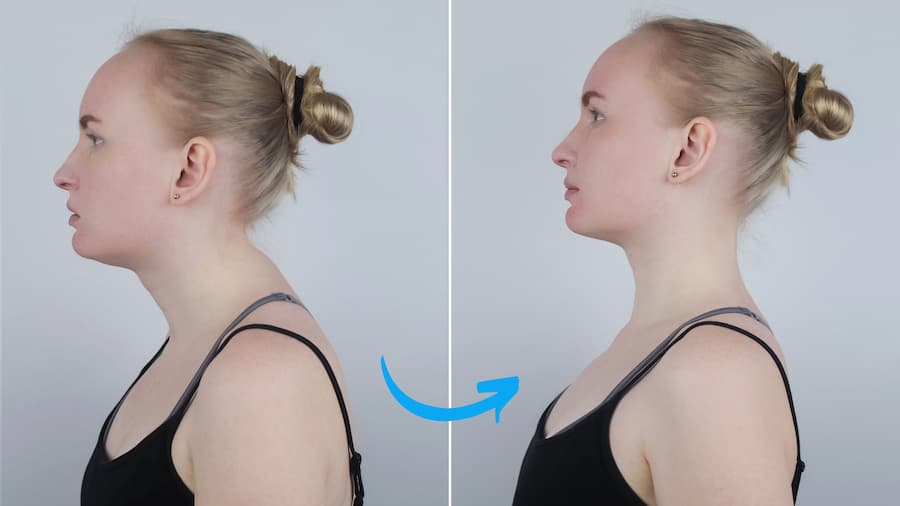Discover Neck Cloud: An Easy Service for Neck Pain and Stress
Discover Neck Cloud: An Easy Service for Neck Pain and Stress
Blog Article
The Effect of Anxiety on Neck Pain: Approaches for Decreasing Tension and Pain
In today's hectic world, it's no trick that tension has ended up being a prevalent aspect in the start and exacerbation of neck discomfort. Join us on a journey to decipher the influence of anxiety on neck discomfort and discover effective means to minimize discomfort and boost overall top quality of life.
Understanding Stress-Related Neck Discomfort
Stress-related neck pain can manifest as tension, rigidity, or discomfort in the neck and shoulder location. The connection between anxiety and neck pain lies in the body's physiological response to tension, which can result in muscle stress and rigidity in the neck muscles.

Identifying Common Tension Locations
Frequently experienced by people under stress, tension locations in the body can provide useful understandings into the physical manifestations of mental strain. One usual tension area is the neck, where tension often materializes physically. Tension headaches, stiff neck muscular tissues, and restricted variety of motion are typical symptoms of stress-related neck tension. The shoulders are an additional usual area where stress accumulates. Anxiety can create the muscles in the shoulders to tighten, causing pain and discomfort. Additionally, the upper back is susceptible to stress accumulation, specifically in people that experience persistent stress. Poor position and extended sitting can worsen stress around. The jaw is additionally an usual area for stress-related stress, as many individuals clench their jaw or grind their teeth when stressed. Understanding these common tension areas can help people recognize the physical indicators of stress and take actions to resolve them prior to they rise right into chronic discomfort or discomfort.
Applying Leisure Methods
To efficiently manage stress-related stress in the body, carrying out relaxation strategies is vital. Relaxation techniques are beneficial tools for reducing neck discomfort triggered by stress. Deep breathing workouts can assist calm the mind and kick back strained muscular tissues in the neck and shoulders (neck cloud). Exercising mindfulness meditation can additionally be helpful in reducing stress and advertising relaxation. Modern muscle leisure, where you systematically stressful and afterwards loosen up different muscular tissue groups, can launch built-up stress in the neck location. Furthermore, tasks like yoga and tai chi include both physical movement and leisure, making them see post effective techniques for reducing tension and neck discomfort. Taking regular breaks throughout the day to stretch and loosen up can avoid muscular tissue rigidity and tension from gathering. By integrating these leisure techniques into your day-to-day routine, you can assist manage stress levels, decrease tension in the neck, and alleviate discomfort related to stress-induced neck discomfort.
Integrating Self-Care Practices
Integrating self-care methods is necessary for keeping total health and handling stress-related neck discomfort properly. Participating in normal physical task, such as mild extending workouts or yoga exercise, can aid relieve stress in the neck and shoulders. Exercising excellent stance throughout the day and taking frequent breaks from prolonged sitting or screen time can also prevent strain on the neck muscles.
Furthermore, focusing on adequate rest and developing a constant rest regimen can click over here now add significantly to reducing tension levels and promoting relaxation. Creating a soothing going to bed regimen, such as checking out a publication or taking a cozy bathroom, can aid prepare the mind and body for relaxing sleep. Furthermore, preserving a balanced diet plan rich in nutrients and staying hydrated can support total wellness and lower swelling that might worsen neck pain.
Incorporating mindfulness techniques, such as deep breathing workouts or meditation, can assist handle tension and promote leisure. Taking time for oneself, taking part in pastimes, and setting borders to safeguard individual time are likewise important facets of self-care that can contribute to reducing stress and reducing neck discomfort.
Seeking Expert Help
Just how can individuals efficiently attend to relentless neck discomfort that is impacting their daily life and wellness? Looking for specialist help can be an important action in handling and alleviating neck pain.
Chiropractic specialists concentrate on spinal manipulation methods to enhance placement and decrease tension in the neck location. Physical specialists offer targeted stretches and exercises to enhance muscle mass, boost versatility, and boost total neck feature. Orthopedic specialists can give innovative clinical treatments such as shots or medical choices for serious situations of neck pain.
Conclusion

Stress-related neck pain can materialize as tension, tightness, or discomfort in the neck and shoulder area. The connection between stress and neck pain exists in the body's physical feedback to stress, which can result in muscle stress and rigidity in the neck muscular tissues. Stress migraines, rigid neck muscle mass, and restricted range of motion are common signs and symptoms of stress-related neck stress. By including these leisure methods into your daily regimen, you can aid handle anxiety degrees, decrease tension in the neck, and reduce pain linked with stress-induced neck pain.

Report this page